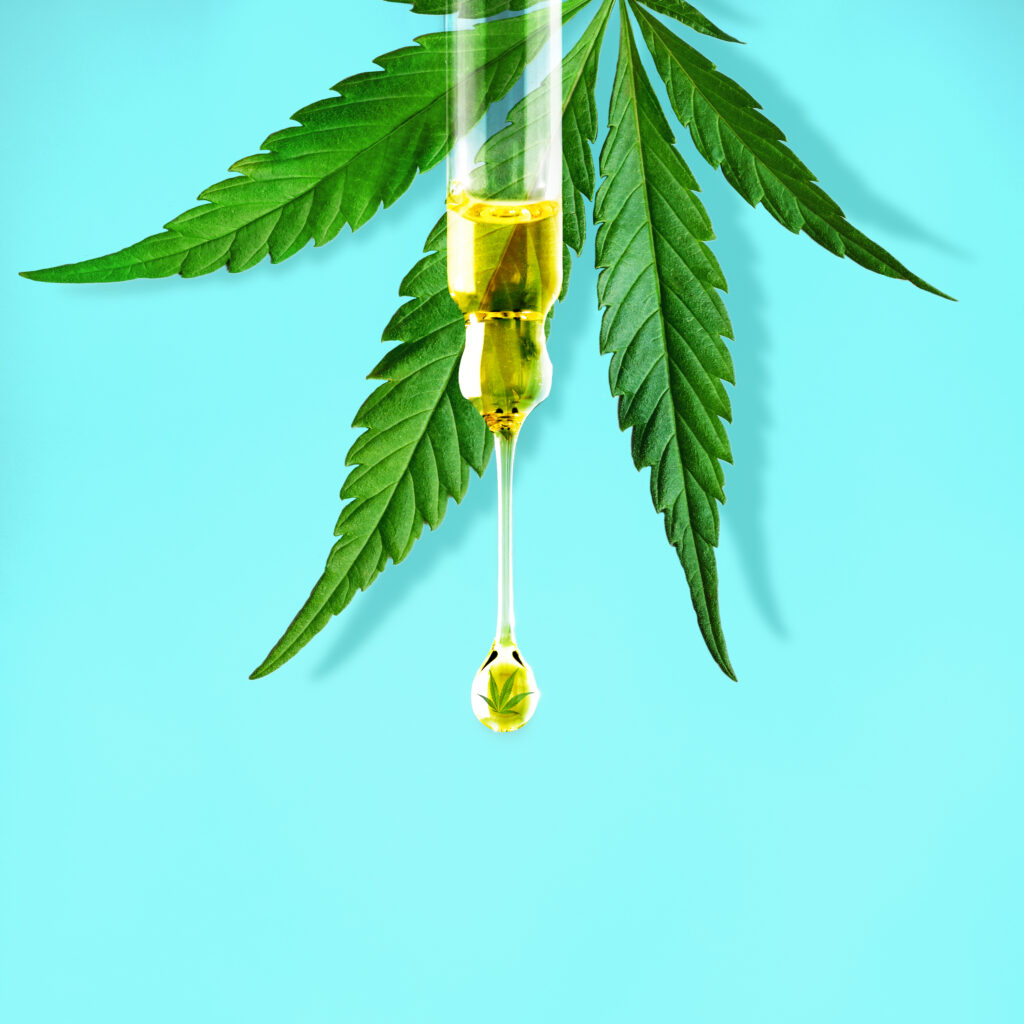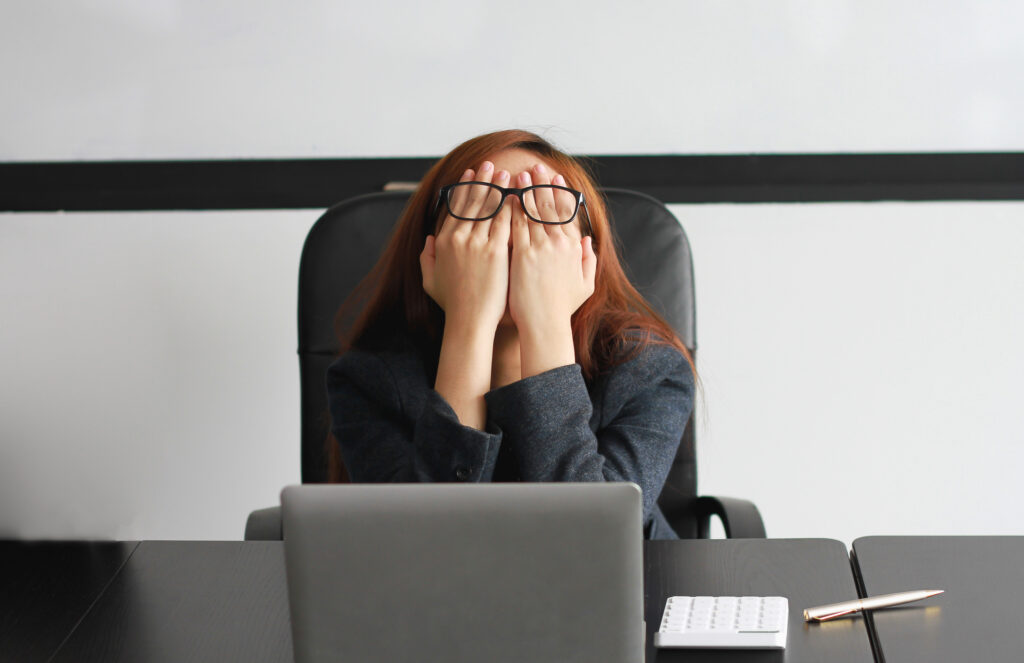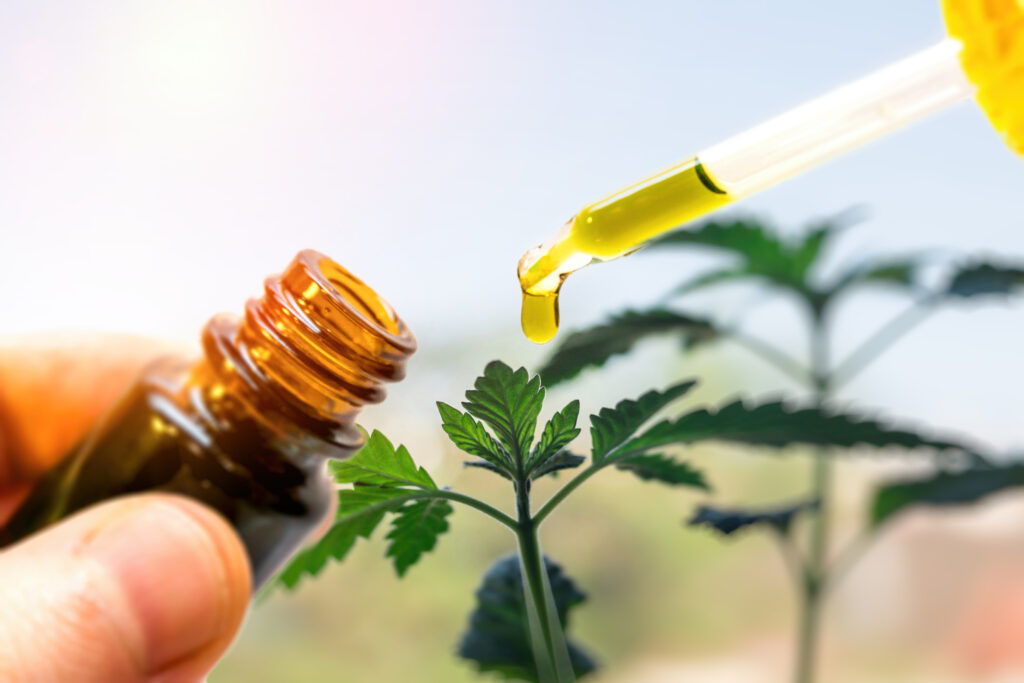
Stress is simply part of the human condition. No matter how laidback your life may seem, everyone finds themselves bogged down and overwhelmed from time to time. Whether you’re drowning in deadlines or have a to-do list as long as your arm, it’s hard to get any meaningful work done when you’re stressed.
But sometimes, it’s more than just your run-of-the-mill stress that has your thoughts racing at 100mph. Anxiety disorders are some of the most common mental health conditions, affecting about 40 million adults in America annually. Furthermore, anxiety disorders often have a high rate of comorbidity with other physical or mental health conditions, such as depression.
In addition to traditional prescription medications, many experts recommend using mindfulness techniques like meditation or yoga to help alleviate stress and anxiety. Natural remedies, such as dietary changes or aromatherapy, are often recommended, as well.
But what about cannabidiol (CBD)? Does CBD have calming effects that could help restore balance to your life?
Stress vs. Anxiety: What’s the Difference?
Although stress and anxiety appear similar on the surface, they refer to two different emotional states. Both emotions are intense and can cause similar symptoms, including:
- Racing thoughts and overthinking
- Increased heart rate
- High blood pressure
- Agitation, irritability, depression
- Restlessness or trouble sleeping
- Shaking or trembling
- Difficulty breathing or rapid breathing (hyperventilation)
- Fatigue and exhaustion
- Digestive problems
However, the underlying cause is different. An external issue or stressor often causes stress. It’s also typically short-term; if the stressor is eliminated, so is the feeling of stress. Chronic stress can occur when working in high-pressure environments. But again, even in cases of chronic stress, there’s an identifiable cause.
Anxiety can also affect anyone from time to time. Nervousness or even having a panic attack before a major event (such as public speaking, presenting, or performing) is not uncommon. But chronic anxiety — often with no apparent cause — that interferes with your daily life is a mental health condition.
Panic attacks are another common facet of anxiety disorders. Panic attacks are intense episodes of anxiety that may cause hyperventilation, dizziness, exceptionally rapid heart rate, and severe distress.
Lastly, anxiety doesn’t refer to just one condition. There are several different types of anxiety disorders, including:
- Generalized Anxiety Disorder (GAD)
- Panic Disorder (PD)
- Social Anxiety Disorder
- Post-traumatic Stress Disorder (PTSD)
- Obsessive-Compulsive Disorder (OCD)
- Specific Phobias (i.e., agoraphobia, arachnophobia, germaphobia)
Can CBD Help Reduce Stress and Anxiety?

Cannabidiol (CBD) is a non-psychoactive cannabinoid found in both hemp and cannabis. Hemp-derived CBD products were legalized with the passage of the 2018 Farm Bill, so you don’t need a medical marijuana card to purchase them.
Several studies have reportedly observed that CBD has anxiolytic properties. Anxiolytic refers to the ability of a substance to reduce anxiety.
According to a Biomolecules journal review, research on how CBD affects anxiety in humans and animals has been ongoing since the 1970s. Over the last five decades, researchers have observed that CBD reduces anxiety in animals by blocking the activation of the hypothalamus-pituitary-adrenal axis and activating the 5HT1A serotonin receptor.
Animal studies also demonstrate that CBD has dose-dependent effects on anxiety, with the most relief occurring at an intermediate dose rather than a low or high dose. These studies also show how the strain the CBD was extracted from may affect its efficacy in reducing anxiety symptoms. CBD has also displayed antidepressant effects in animal models.
These same anxiolytic effects have been observed in human studies, too. One large case series “suggested that administration of CBD decreased anxiety rapidly and in a sustained matter,” the review states.
Another study on social anxiety disorders observed how CBD affects individuals with social phobias during simulated public speaking events. The participants were either given CBD or a placebo an hour and a half before the simulated public speaking event.
“Pretreatment with CBD significantly reduced anxiety, cognitive impairment, and discomfort in their speech performance, and significantly decreased alerts in their anticipatory speech,” the study concluded. “The placebo group presented higher anxiety, cognitive impairment, discomfort, and alert levels when compared with the control group as assessed with the Visual Analogue Mood Scale.”
A small case series was conducted on the effects of CBD in participants with PTSD. Out of 11 participants, CBD decreased PTSD symptom severity in 91 percent of them. CBD also relieved the participants who reported frequent nightmares due to PTSD.
It’s worth noting that CBD was used as an adjunct therapy in this case series, meaning it was administered along with routine psychiatric care. This means the participants still took their medications and received psychotherapy during the study.
Key Takeaways: CBD Displays Anxiety-Reducing Effects in Humans and Animals

Stress and anxiety are incredibly prevalent, especially in the fast-paced and sometimes devastating world of the 21st century. Although both can cause profound disturbances in your daily routine, stress and anxiety are not the same thing.
Stress typically has an observable cause and is alleviated by the absence of the stressor. Contrastingly, anxiety disorders are characterized by persistent worry that continues even in the absence of stressors.
Several decades of research have repeatedly demonstrated that CBD has anxiolytic effects in humans and animals. Studies have also been conducted on participants with specific anxiety disorders, including social anxiety and PTSD.
To learn more about the effects of cannabis on mental health, listen to episode nine of the Cannabis Science Today podcast. In this episode, host Emily Fata interviews Dr. Mark Braunstein to discuss how cannabis affects depression, addiction, and anxiety.
References
- Anxiety & Depression Association of America. (n.d.). Facts & Statistics | Anxiety and Depression Association of America, ADAA. https://adaa.org/understanding-anxiety/facts-statistics
- American Psychological Association. (2019, October 28). What’s the difference between stress and anxiety? https://www.apa.org/topics/stress/anxiety-difference
- García-Gutiérrez, M. S., Navarrete, F., Gasparyan, A., Austrich-Olivares, A., Sala, F., & Manzanares, J. (2020). Cannabidiol: A Potential New Alternative for the Treatment of Anxiety, Depression, and Psychotic Disorders. Biomolecules, 10(11), 1575. https://doi.org/10.3390/biom10111575
- Bergamaschi, M. M., Queiroz, R. H. C., Chagas, M. H. N., de Oliveira, D. C. G., de Martinis, B. S., Kapczinski, F., Quevedo, J., Roesler, R., Schröder, N., Nardi, A. E., Martín-Santos, R., Hallak, J. E. C., Zuardi, A. W., & Crippa, J. A. S. (2011). Cannabidiol Reduces the Anxiety Induced by Simulated Public Speaking in Treatment-Naïve Social Phobia Patients. Neuropsychopharmacology, 36(6), 1219–1226. https://doi.org/10.1038/npp.2011.6
- Elms, L., Shannon, S., Hughes, S., & Lewis, N. (2019). Cannabidiol in the Treatment of Post-Traumatic Stress Disorder: A Case Series. The Journal of Alternative and Complementary Medicine, 25(4), 392–397. https://doi.org/10.1089/acm.2018.0437
- Cannabis Science Today. (2020, May 20). #9 Cannabis & Mental Health with Dr. Mark Braunstein. Apple Podcasts. https://podcasts.apple.com/us/podcast/9-cannabis-mental-health-with-dr-mark-braunstein/id1483527353?i=1000475260460